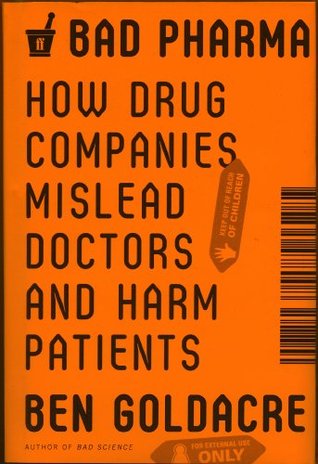More on this book
Community
Kindle Notes & Highlights
by
Ben Goldacre
Started reading
June 25, 2024
Then, in the 1980s, people began to do something called a ‘systematic review’. This is a clear, systematic survey of the literature, with the intention of getting all the trial data you can possibly find on one topic, without being biased towards any particular set of findings.
When you’ve got all the trial data in one place, you can conduct something called a meta-analysis, where you bring all the results together in one giant spreadsheet, pool all the data and get one single, summary figure, the most accurate summary of all the data on one clinical question.
This affects everyone, but it is especially egregious in the world of ‘orphan diseases’, medical problems that affect only small numbers of patients, because these corners of medicine are already short of resources, and are neglected by the research departments of most drug companies, since the opportunities for revenue are thinner.
Crucially, the fact that the sponsoring company had this opportunity to introduce bias wasn’t mentioned in any of the published academic papers reporting the results of these trials, so nobody reading the literature could possibly know that these studies were subject – by design – to such an important flaw.
So contracts that permit companies and researchers to withhold or control data are common, and they’re bad news.
First, unfortunately, despite the undoubted goodwill, requiring the publication of all trials starting from ‘now’ does absolutely nothing for medicine today.
But there is a second, more disturbing reason why these regulations should be taken with a pinch of salt: they have been widely ignored.
So that, in total, is why I regard the ICMJE, the FDA and the EU’s claims to have addressed this problem as ‘fake fixes’. In fact, they have done worse than fail: they have given false reassurance that the problem has been fixed, false reassurance that it has gone away, and they have led us to take our eyes off the ball.
Blood from a stone: trying to get data from regulators
First, the regulators may not have the information in the first place. Second, the way in which they ‘share’ summary trial information with doctors and patients is broken and shabby. And finally, if you try to get all of the information that a drug company has provided – the long-form documents, where the bodies are often buried – then regulators present bizarre barriers, blocking and obfuscating for several years at a time, even on drugs that turn out to be ineffective and harmful.
One: Information is withheld from regulators
the use of a drug in children is treated as a separate marketing authorisation from its use in adults.
When GSK applied for a marketing authorisation in children for paroxetine, an extraordinary situation came to light, triggering the longest investigation in the history of UK drugs regulation. This investigation was published in 2008, and examined whether GSK should face criminal charges.
How is it possible that our systems for getting data from companies are so poor that they can simply withhold vitally important information showing that a drug is not only ineffective, but actively dangerous?
That leads us to the second obvious flaw in the current system: the results of these trials – the safety data and the effectiveness data – are given in secret to the regulator, which then sits and quietly makes a decision.
I don’t think that the people who work in the MHRA are bad, or incompetent: I know a lot of them, and they are smart, good people. But we shouldn’t trust them to analyse this data alone, in the same way that we shouldn’t trust any single organisation to analyse data alone, with nobody looking over its shoulder, checking the working, providing competition, offering helpful criticism, speeding it up, and so on.
people outside the agencies cannot be trusted with this information, because they might misinterpret it, either deliberately or through incompetence.
Two: Regulators make it hard to access the data they do have
Three: Regulators withhold study reports that they do have
Regulators, in my experience, are preoccupied with the idea that they see all the data, and use it to make the decision about whether a drug should go on the market, and that this is enough: doctors and patients don’t need to see the data, because the regulator has done all that work.
the Declaration of Helsinki, the ethics code which frames modern medical activity, says that research is justified if the population from whom participants are drawn would benefit from the results.
I recommend a small photocopied magazine called Guinea Pig Zero. For anyone who likes to think of medical research as a white-coated exercise, with crisp protocols, carried out in clean glass-and-metal buildings, this is a rude awakening.
In the US, where for decades many millions of people have been unable to pay for health care, clinical trials have often been marketed as a way to access free doctors’ appointments, scans, blood tests and treatment.


